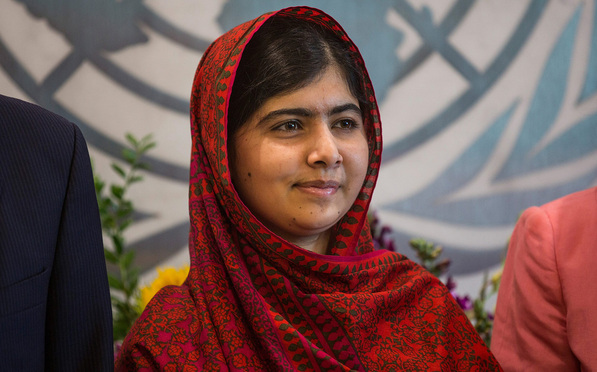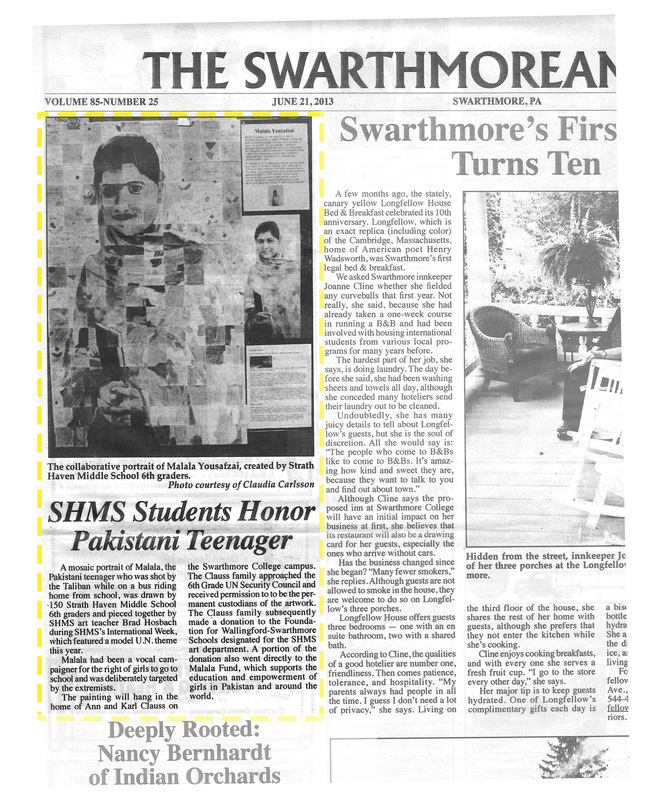|
This week, Malala Yousafzai became the youngest ever recipient of the Nobel Peace Prize, which she will share with the Indian child-rights activist Kailash Satyarthi. News of the award was a joy to my heart, as it was for Malala’s millions of well-wishers, who have been following her story ever since the attack on her life (October 2012), which brought her into the global spotlight. As a blogger and education activist, Malala was already a strong voice before the attack, and people (like me) in the West who have a natural interest in Pakistan and the surrounding countries already knew her name. But a natural interest in Pakistan is still an unusual thing in my part of the world, and I was in a very small minority of Americans who knew of Malala Yousafzai before she was shot. It is ironic that she should have to come so close to death before the rest of the world could get to know her--but in truth that is not surprising. What makes any person famous? There is always a combination of genuine substance and a stroke of luck. The crack of the bullet focused the world’s attention on Malala--and it is to the world’s credit that we all fell in love with her. As she recovered and regained her voice, the world got to meet the girl who had already begun her journey as an activist years before. The only difference was that now she had a much larger audience to speak to. And her voice rings clearly whenever she speaks. The far deeper irony, however, is her reception in Pakistan itself. Many Pakistanis are delighted to celebrate with Malala and feel proud for their nation to be honored in this way. But many others--and it’s impossible to say what percentage, but it is undoubtedly significant--are opposed to Malala, some simply believing that she is undeserving, and others brewing elaborate conspiracy theories purporting that Malala is a fiction created by the West with some intention of controlling Pakistani minds and pocketbooks. (How on earth could that goal be accomplished? And why? I have no idea.) To all those in Pakistan who dislike Malala, I urge you to realize what a powerful and positive symbol she is for the world. Please remember that we in the West (especially we in America) do not have a broad knowledge of Pakistan--in fact, many Americans are almost completely ignorant of Pakistani history, and most know very little about Islam as well. That is not because of hatred--it is just lack of awareness. We tend to need large events to prompt us to look outside of ourselves and learn about others. That is our weakness, but it is an area where we can become stronger. People like Malala teach the Western world about the East, about the diversity of Pakistani culture, and about Islam. And isn’t Malala a wonderful example of a strong, intelligent, modest, faithful Muslim girl, devoted to her Swati homeland? I can’t think of a better individual for the West to get to know. The West loves Malala because of her essence--her humanity and her mission; and now that we love her essence, it becomes easier for us to love her context. Far more people will now be inspired to learn about the Swat valley, to learn about Pashtoon culture, to learn about Pakistan, to learn about Islam. Because Malala has given us a gateway of entrance--she bridges the gap between us. She invites us to say along with her, “I am Malala.” We can all start to imagine life from her perspective. And that willingness to identify with others is what creates a pathway for peace and progress. Isn’t that a beautiful thing?
4 Comments
kashif ali
10/13/2014 03:01:22 am
I think Malala is the counter narrative against terrorism. collective thinking of a society is always controlled by education. Malala as a movement of enlightened moderation can eradicate narrow mindedness, anti critical views and gender bias from our education system.
Reply
Emily
11/29/2014 10:59:21 pm
Thank you very much, dear Kashif!
Reply
Mansoor Mirani
10/13/2014 05:17:15 am
Respected Sister Emily,
Reply
Emily
11/29/2014 10:59:49 pm
thank you, dear ada Mansoor.
Reply
Leave a Reply. |
Image at top left is a digital
portrait by Pakistani artist Imran Zaib, based on one of my own photographic self-portraits in Thari dress. AuthorCurious mind. Archives
September 2020
Categories |
emily s. hauze


 RSS Feed
RSS Feed
